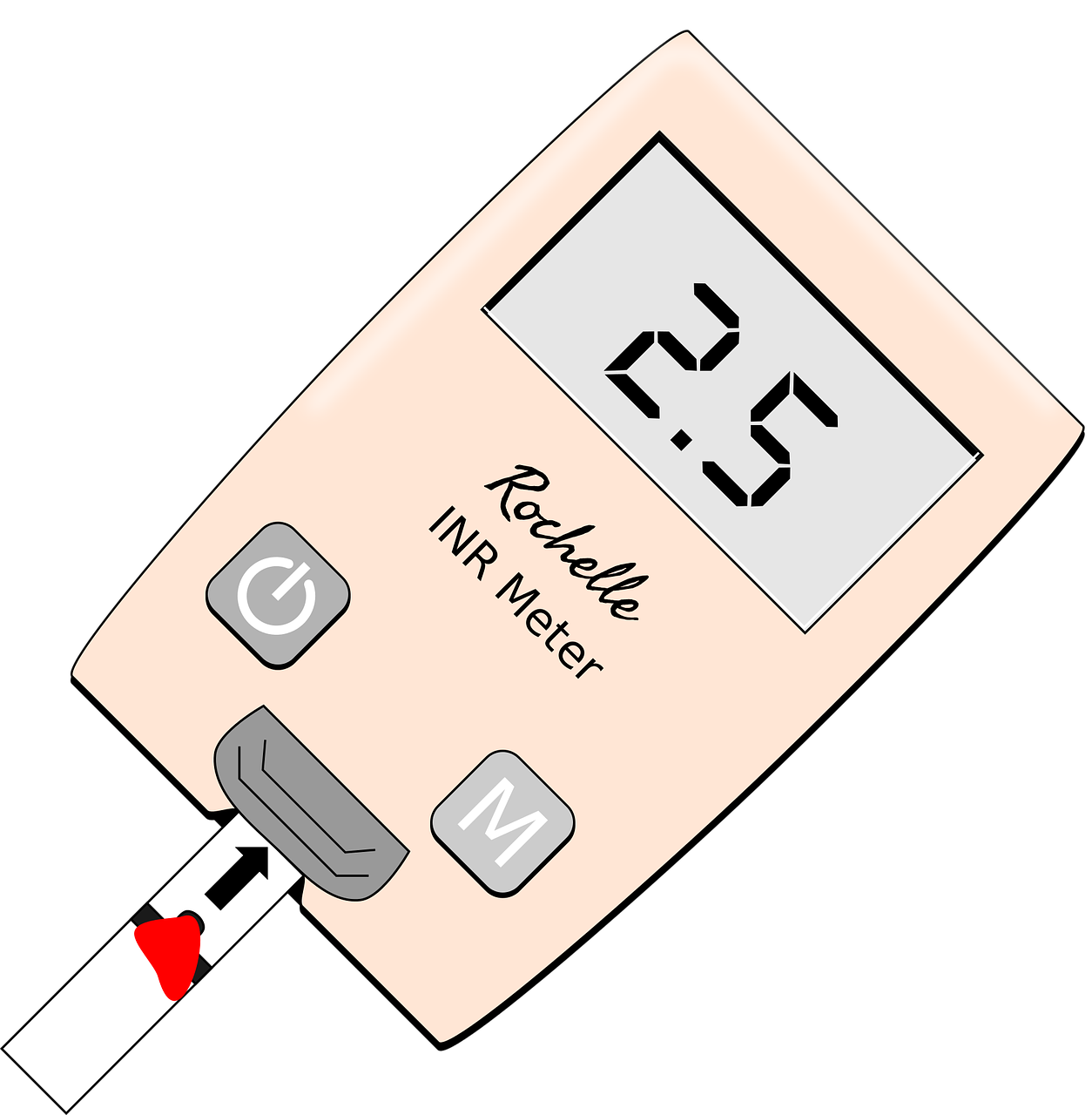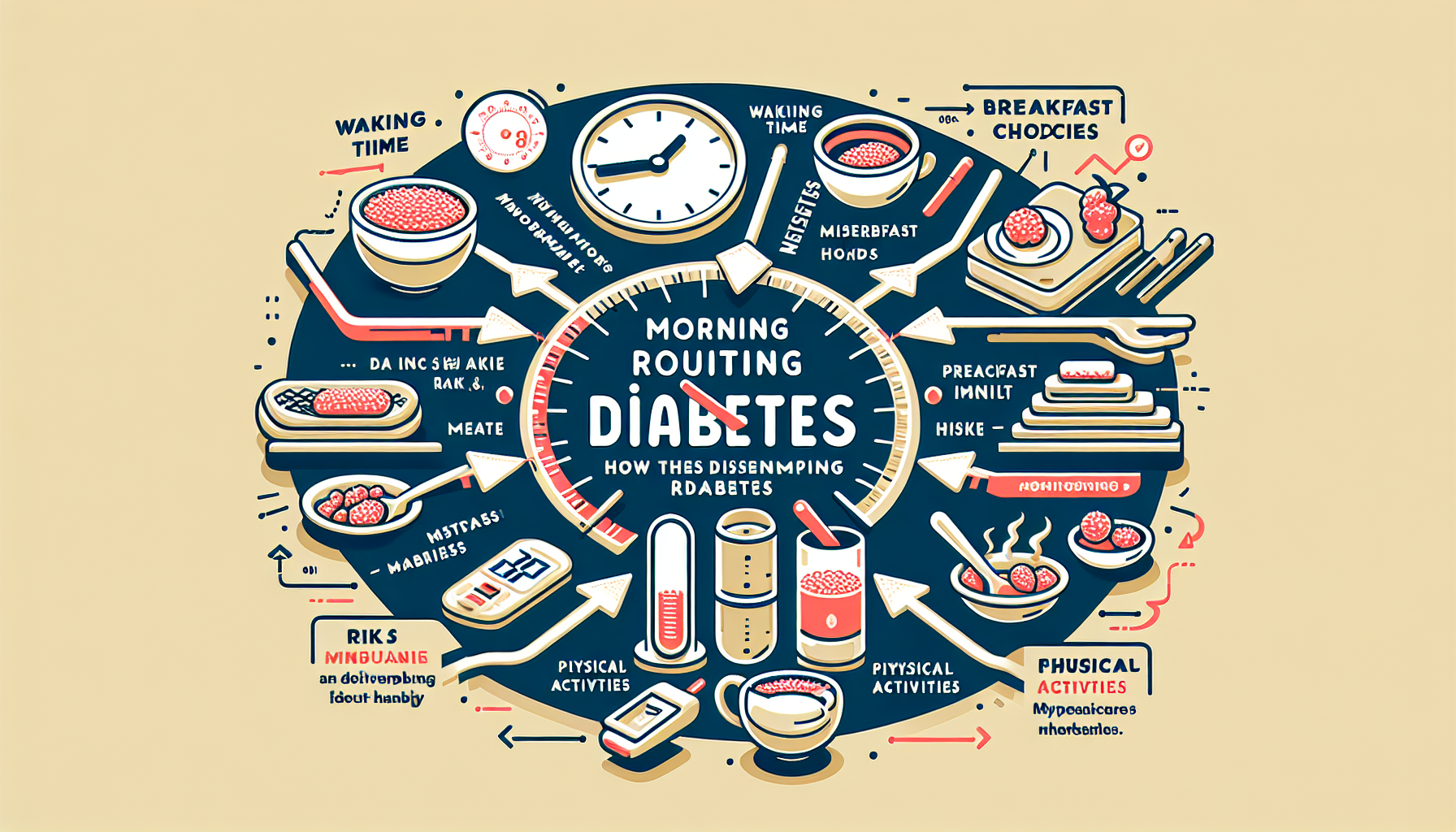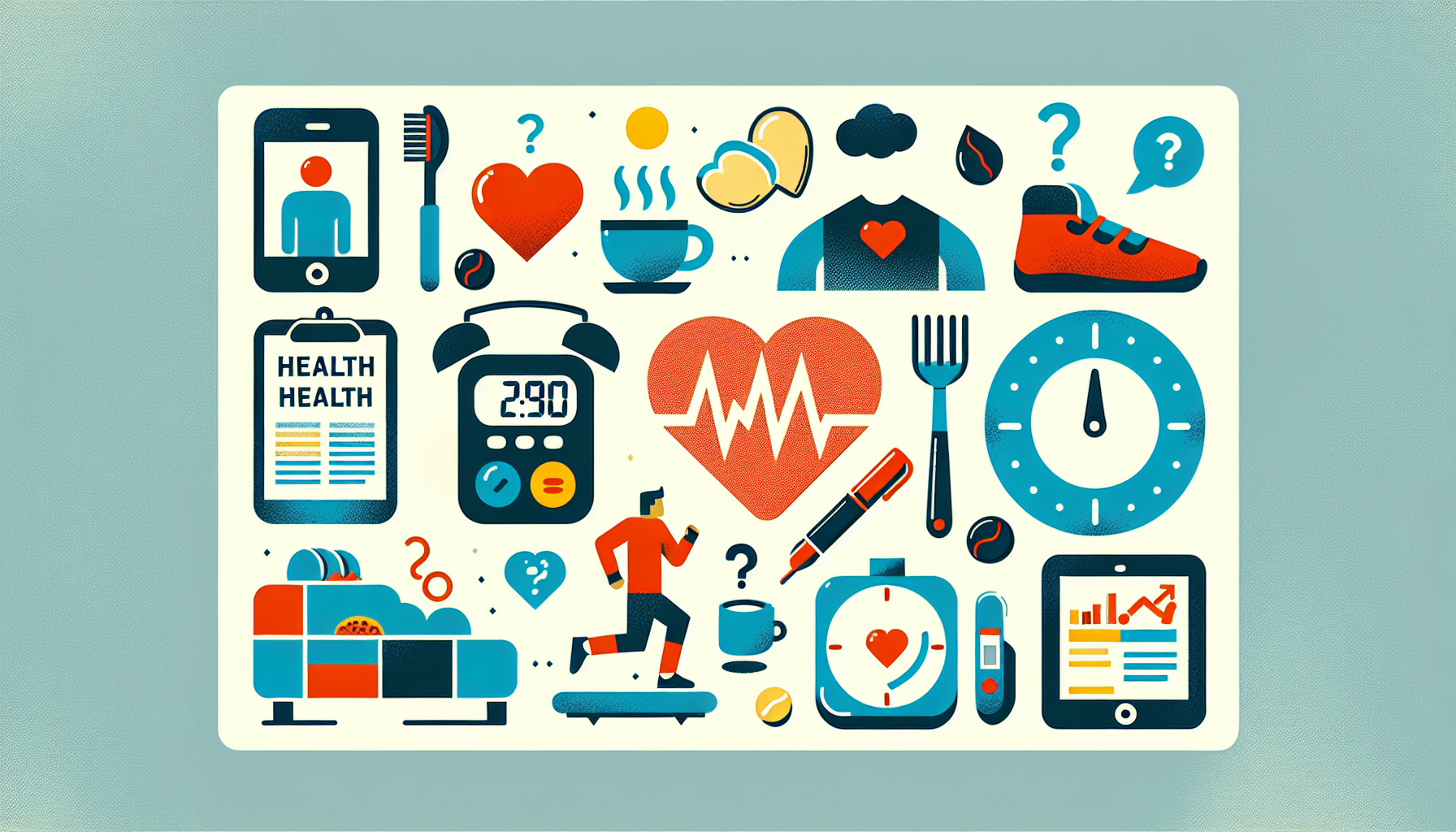Start your day on the right foot and lower your diabetes risk with a few simple tweaks to your morning routine. Recent scientific studies have explored the fascinating connection between morning habits and the likelihood of developing diabetes. For instance, a study published in the Journal of Clinical Endocrinology and Metabolism found that individuals who regularly skipped breakfast had a higher risk of developing diabetes than those who made it a priority. Another study, conducted by researchers at the University of Bath, discovered that exposure to natural light early in the day can help regulate blood sugar levels and reduce the risk of diabetes. With these findings in mind, it’s clear that the choices you make in the morning can have a profound impact on your overall health. So why not take a closer look at your morning routine and make some simple adjustments that could make a world of difference?

Discover the Ultimate Weight Loss Secrets Here!
The Link Between Morning Routine and Diabetes Risk
Understanding the Impact of Morning Activities on Diabetes Risk
Your morning routine can have a significant impact on your overall health, including your risk of developing type 2 diabetes. Recent studies have highlighted the importance of various morning activities, such as breakfast consumption, exercise, stress management, and sleep, in influencing diabetes risk.
Factors That Influence Diabetes Risk
Diabetes is a complex disease, and several factors contribute to its development. While genetics plays a role, lifestyle factors, including diet, physical activity, stress levels, and sleep patterns, also play a significant role in determining an individual’s risk of developing diabetes.
The Concept of Chronobiology and Circadian Rhythm
Chronobiology is the field of study that examines the impact of time on biological processes. Our bodies have an internal clock known as the circadian rhythm, which regulates essential bodily functions, including hormone release, blood sugar control, and sleep-wake cycles. Disruptions to the circadian rhythm, such as irregular sleeping patterns and meal timings, can contribute to an increased risk of diabetes.
Impact of Skipping Breakfast on Diabetes Risk
Summary
A study published in the Journal of Nutrition examined the association between breakfast skipping and diabetes risk in a large cohort of individuals. The study found that individuals who regularly skipped breakfast had a significantly higher risk of developing type 2 diabetes compared to those who had a regular breakfast routine.
Research Methodology
The study followed a group of participants for several years and collected detailed information about their breakfast habits and diabetes status. Researchers adjusted for confounding variables such as age, BMI, and physical activity levels to isolate the impact of breakfast skipping on diabetes risk.
Findings and Results
The findings of the study revealed a clear link between breakfast skipping and an increased risk of developing type 2 diabetes. Individuals who skipped breakfast had higher fasting blood glucose levels, impaired insulin sensitivity, and a higher prevalence of obesity, all of which are risk factors for diabetes.
Implications for Diabetes Risk Management
This study highlights the importance of incorporating a healthy breakfast into your morning routine as a means of managing your diabetes risk. By fueling your body with a balanced meal in the morning, you can help regulate your blood sugar levels and support overall metabolic health.
Click Here for Proven Fat-Burning Strategies!
Effect of Early Morning Exercise on Glucose Levels
Summary
Another study, conducted at the University of Sydney, explored the effects of early morning exercise on glucose levels in individuals at risk of developing type 2 diabetes. The study aimed to determine whether engaging in physical activity in the morning could help improve blood sugar control.
Research Methodology
The study involved a group of sedentary individuals at high risk of type 2 diabetes. Participants were randomly assigned to either a morning exercise group or a control group. The morning exercise group engaged in moderate-intensity aerobic exercise for 30 minutes each morning, while the control group maintained their sedentary lifestyle.
Findings and Results
The study found that the participants in the morning exercise group experienced significant improvements in their glucose tolerance and insulin sensitivity compared to the control group. The exercise intervention led to better blood sugar control throughout the day, highlighting the benefits of incorporating exercise into your morning routine.
Implications for Diabetes Risk Management
Engaging in physical activity in the morning can help regulate blood sugar levels and improve insulin sensitivity, reducing the risk of developing type 2 diabetes. Consider incorporating aerobic exercises, such as brisk walking, jogging, or cycling, into your morning routine to support your overall metabolic health.
Influence of Stress Management Techniques on Diabetes
Summary
Stress is a common part of our daily lives, and it can have a significant impact on our health, including our diabetes risk. A study conducted by researchers at the University of California examined the influence of stress management techniques on diabetes risk.
Research Methodology
The study recruited individuals at risk of developing type 2 diabetes and provided them with stress management interventions. These interventions included mindfulness meditation, breathing exercises, and cognitive-behavioral therapy techniques. The participants were then monitored for changes in stress levels and diabetes risk factors.
Findings and Results
The findings of the study demonstrated that stress management techniques significantly improved stress levels and reduced diabetes risk factors such as fasting blood glucose levels and insulin resistance. By effectively managing stress, individuals can lower their risk of developing type 2 diabetes.
Implications for Diabetes Risk Management
Incorporating stress management techniques into your morning routine can help reduce your diabetes risk. Mindfulness meditation, breathing exercises, and cognitive-behavioral therapy techniques can aid in stress reduction and promote overall well-being.

The Importance of a Healthy Breakfast
Nutritional Impact of Breakfast
Breakfast is often referred to as the most important meal of the day, and for good reason. It provides your body with the essential nutrients it needs to function optimally throughout the day. A healthy breakfast should include a balance of macronutrients such as carbohydrates, protein, and healthy fats.
Effect of Breakfast on Blood Sugar Control
Eating a balanced breakfast helps regulate blood sugar levels, preventing spikes and crashes. When you skip breakfast, your body may experience fluctuations in blood glucose levels, which can increase the risk of developing insulin resistance and type 2 diabetes.
Balancing Macronutrients for a Diabetes-Friendly Breakfast
When planning your breakfast, aim for a combination of carbohydrates, protein, and healthy fats. Choose whole-grain cereals or bread, add lean protein sources like eggs or Greek yogurt, and incorporate healthy fats from sources like nuts or avocado. This balanced approach will help keep your blood sugar levels stable and promote overall metabolic health.
Incorporating Exercise in the Morning
Benefits of Morning Exercise for Diabetes Risk
Engaging in regular exercise is crucial for managing diabetes risk. When you exercise in the morning, it kickstarts your metabolism, helps regulate blood sugar levels, and promotes weight management. Additionally, morning exercise has been shown to improve insulin sensitivity, reducing the risk of type 2 diabetes.
Types of Exercise Suitable for Morning Routine
There are various types of exercises you can incorporate into your morning routine. Aerobic exercises like walking, jogging, or cycling are excellent choices for getting your heart rate up and promoting cardiovascular health. Strength training exercises using resistance bands or bodyweight exercises can also be included to build muscle and increase metabolism.
Time and Duration of Morning Exercise
The ideal timing and duration of morning exercise may vary depending on individual preferences and schedules. Aim for at least 30 minutes of moderate-intensity aerobic exercise, such as brisk walking, and consider adding strength training exercises two to three times a week. Find a routine that works best for you and stick to it consistently.
Precautions and Considerations
Before starting any new exercise regimen, it is important to consult with your healthcare provider, particularly if you have any underlying health conditions or concerns. They can provide specific guidance tailored to your needs and help ensure that you exercise safely and effectively.

Managing Stress to Reduce Diabetes Risk
The Role of Stress in Diabetes Development
Chronic stress can have a negative impact on your physical and mental health, including an increased risk of developing type 2 diabetes. When stressed, our bodies release cortisol, a hormone that can lead to higher blood sugar levels and insulin resistance over time.
Stress Management Techniques for the Morning Routine
Incorporating stress management techniques into your morning routine can help reduce your overall stress levels and mitigate the associated diabetes risk. Practices such as mindfulness meditation, deep breathing exercises, and cognitive-behavioral therapy techniques can be effective in combating stress.
Mindfulness and Meditation
Mindfulness meditation involves focusing your attention on the present moment, helping to cultivate a sense of calm and reduce stress. Incorporating a brief mindfulness practice in the morning, even for just a few minutes, can set a positive tone for the day and support overall well-being.
Breathing Exercises
Deep breathing exercises can activate the body’s relaxation response, promoting a sense of calm and reducing stress levels. Incorporate simple breathing techniques, such as diaphragmatic breathing or box breathing, into your morning routine to help manage stress throughout the day.
Importance of a Positive Mindset
In addition to specific stress management techniques, cultivating a positive mindset is crucial for reducing stress and minimizing diabetes risk. Start your day with positive affirmations, practice gratitude, and surround yourself with supportive and uplifting individuals to foster a positive environment for your morning routine.
The Role of Sleep in Diabetes Risk
The Connection Between Sleep and Diabetes Risk
Sleep plays a vital role in keeping our bodies healthy and functioning optimally. Poor sleep quality or inadequate sleep duration can disrupt the body’s metabolic processes, leading to an increased risk of developing type 2 diabetes.
Recommended Amount of Sleep for Diabetes Prevention
The American Academy of Sleep Medicine recommends adults aim for 7-9 hours of sleep per night to maintain optimal health. By prioritizing a good night’s sleep and incorporating adequate rest into your morning routine, you can reduce your diabetes risk.
Tips for a Good Night’s Sleep
Creating a bedtime routine can help signal to your body that it’s time to wind down and prepare for sleep. Establish a consistent sleep schedule, create a calm and comfortable sleep environment, limit exposure to electronic devices before bed, and avoid stimulants like caffeine in the evening. These tips can help improve sleep quality and reduce the risk of diabetes.

Tips for Maintaining a Healthy Morning Routine
Taking Small Steps to Change Your Morning Routine
Making significant changes to your morning routine can be overwhelming. Instead, start by incorporating small, manageable steps that align with your goals. Whether it’s adding five minutes of exercise, including protein in your breakfast, or practicing a brief stress management technique, taking small steps can lead to lasting changes.
Setting Realistic Goals and Priorities
Identify your personal goals and prioritize them within your morning routine. This could be focusing on exercise, stress management, or sleep. By setting realistic expectations and dedicating time to these areas, you can make meaningful progress in managing your diabetes risk.
Including Supportive Resources and Tools
There are numerous resources and tools available to help you maintain a healthy morning routine. From fitness apps to meditation guides and sleep-tracking devices, these supportive resources can provide guidance and accountability on your journey to optimal diabetes risk management.
Tracking Progress and Adjusting Accordingly
Regularly assess your progress and adjust your morning routine as needed. Keep a journal, use a habit tracker, or utilize smartphone apps to monitor your breakfast choices, exercise frequency, stress levels, and sleep patterns. These tools can help you stay on track and make necessary adjustments for optimal diabetes risk management.
In conclusion, your morning routine can significantly impact your risk of developing type 2 diabetes. Incorporating a healthy breakfast, engaging in morning exercise, managing stress, prioritizing sleep, and making small changes to your routine can all contribute to better diabetes risk management. By taking proactive steps and cultivating a healthy morning routine, you can support your overall health and well-being while reducing the risk of diabetes.

